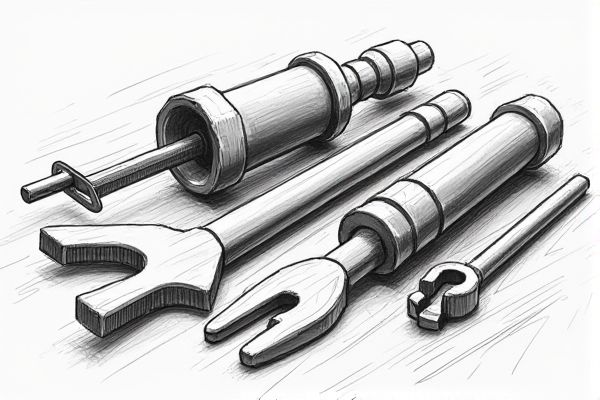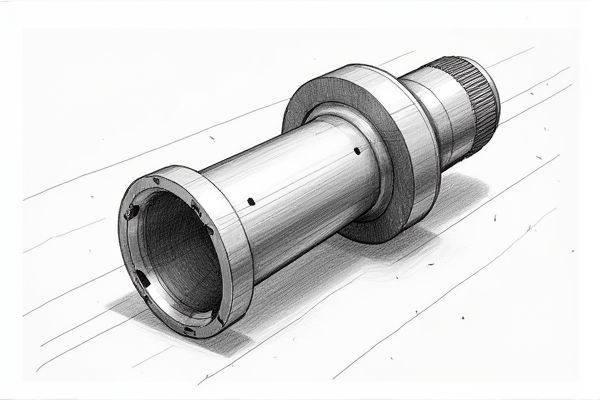In today's rapidly evolving market, the demand for reliable and high-quality hardware tools has never been higher. Whether you're a professional contractor or a DIY enthusiast, having the right tools can make all the difference in ensuring efficiency and precision in your projects. Leading brands have consistently innovated to offer robust and versatile solutions, catering to various needs and preferences. To discover which brands are setting the benchmarks in the industry, we invite you to explore the comprehensive list below.

Illustration of hardware tools
Best brands of hardware tools in 2025
DeWalt
DeWalt, a prominent brand under Stanley Black & Decker, leads the power tools market with a remarkable 16% unit share and 17% dollar share as of September 2023, showcasing a 0.7 percentage point increase in unit share and a 0.6 percentage point increase in dollar share from the previous year. DeWalt is the only major brand to have experienced an increase in unit share and continues to excel in brand consideration with a 22% share. The brand is celebrated for its durable construction and reliable performance, making it a favored choice among professionals and DIYers alike. DeWalt's extensive product line includes a variety of tools such as drills, saws, grinders, and sanders. Its steadfast commitment to innovation and quality craftsmanship has solidified its status as one of the world's leading power tool manufacturers. Discover more about power tools market trends to understand the dynamics shaping the industry.
Bosch
Bosch is a leading producer of hardware tools, boasting a 12.5% market share in the global power tool market, making it the second-largest player after Stanley Black & Decker. In 2022, Bosch Power Tools achieved sales of 5.9 billion euros, despite challenging economic conditions, and plans to more than double its sales by the end of the decade. The company is known for its innovative strength and customer focus, with brands like Bosch and Dremel driving its success. Bosch Power Tools generated sales of 5.6 billion euros in 2023, with approximately 90% of these sales coming from outside Germany. The division is set to launch over 100 new products in 2024 across its business segments.
Makita
Makita is a renowned Japanese manufacturer and a leading global player in the power tool industry, founded in 1915. The company maintains a dominant market share of about 60% in Japan and competes strongly in Europe, where it holds around 20% of the market share. Makita generates a significant portion of its revenue from power tools, accounting for almost 54.5% of its total revenue in the fiscal year ended March 31, 2024. With a global market share of 6.8%, Makita is the fourth-largest player in the power tool market, offering a wide range of cordless and electric tools for professional and consumer applications. The company's products are sold in over 160 countries, reflecting its strong international presence and commitment to innovation. For more insights on their long-term growth pillars, visit the provided report.
Milwaukee
Milwaukee Tool is a leading producer of hardware tools, renowned for its professional-grade power tools, hand tools, and accessories. As of 2023, the brand held a significant market share, with North America accounting for over 40% of the global revenue, Europe contributing over 30%, and the Asia Pacific region making up more than 23%. Milwaukee Tool is expected to grow at a compound annual growth rate (CAGR) of 4.2% in North America, 6.0% in Europe, and 8.0% in the Asia Pacific from 2023 to 2030. The brand's success is driven by its focus on cutting-edge technology and user-centric design, particularly in the construction sector. Milwaukee Tool's products, such as electrical and pneumatic polishers, are highly regarded for their performance and durability.
Stanley
Stanley, a renowned brand under PMI Worldwide and Stanley Black & Decker Inc., has established itself as a leader in the hardware tools and outdoor accessories market. In the U.S. outdoor specialty market, Stanley was named the fastest-growing equipment accessories brand, with a 40% increase in specialty U.S. sales and a 90% growth in sporting goods and outdoor channels in 2021. In the power tools industry, Stanley Black & Decker holds more than 28% of the total revenue, highlighting its strong brand image and diversified product line. The brand's innovative approach and rapid growth, including a 350% increase in direct-to-consumer sales and a 150% rise in e-commerce sales in 2021, further solidify its position. With such significant market presence and growth, Stanley continues to be a trusted name for high-quality hardware tools. For more information, visit their official website.
Craftsman
Craftsman, a renowned brand in the hardware tools industry, maintains a significant market presence, holding a 26.6% share of the hand tools and accessories market and an 8.3% share of portable power tool sales as of recent years. Despite a decline in sales over the last four years, Craftsman remains the leader in hand tools and accessories with a 28.5% market share. The brand's products are predominantly sold through Sears, Kmart, and Sears Hometown stores, with about 10% sold through external channels like Ace Hardware. Following its acquisition by Stanley Black & Decker in 2017, Craftsman is expected to expand its reach into new retail channels, including The Home Depot, Lowe's, and e-commerce platforms. This expansion aims to drive growth and increase annual revenue by $100 million over the next decade. For detailed insights, explore their latest strategic move in the Craftsman Deal Analysis.
Ryobi
Ryobi is a leading brand in the hardware tools industry, renowned for its innovative and extensive range of power tools. Since 1968, Ryobi has been a household name, particularly with the launch of its cordless lithium-ion technology, the RYOBI 18V ONE+ System, which boasts over 280 compatible products. As of 2023, Ryobi holds a 20% market share in the outdoor power equipment industry, and in the U.S., it accounts for 35% of Home Depot's power tool sales in Q4 2022. Ryobi's products, including cordless nailers and power stations, have won several awards, such as the World Tool Awards and the Pro Tool Innovation Awards. The brand's focus on key subcategories like power tools, trimmers, and pressure washers has been crucial to its success.
Black+Decker
Black+Decker, a prominent brand under Stanley Black & Decker, is a leading producer of hardware tools, boasting a significant market share of 27.34% in the U.S. hand tools market as of Q3 2024. The company invests heavily in research and development, with over $360 million spent in 2023, driving innovation and growth. Black+Decker's products cater to both professionals and DIY enthusiasts, with a focus on ergonomic solutions and patented designs. The brand is part of a larger market expected to grow from $5.46 billion in 2023 to $6.84 billion by 2029, with a CAGR of 3.83%. Black+Decker's commitment to quality and innovation solidifies its position as a top choice in the hardware tools industry. More information about their extensive range of products can be found on their official website.
Hilti
Hilti is a leading producer of hardware tools, demonstrating robust growth despite challenging economic conditions. In 2023, the company reported a 2.7% increase in sales to CHF 6.5 billion and a 5.3% rise in operating profit to EUR770 million, driven by strong performance in Europe and the Asia/Pacific region, with a 13.8% sales increase in the latter. The launch of its cordless range Nuron in 2022 was a significant growth factor, along with the introduction of 30 new tools. Hilti also invested 3.9% more in research and development, reaching CHF 454 million, and acquired the 4PS Group to enhance its construction industry solutions. The company's global footprint and innovative strategies position it for continued growth. Discover more about their robust hardware solutions on their official website.
Hitachi
Hitachi is renowned as one of the leading producers of hardware tools, boasting a diverse portfolio that includes railway systems, power grids, nuclear energy solutions, and advanced digital technologies. In fiscal 2024, Hitachi expects revenues to exceed 2.8 trillion yen, with an adjusted EBITA margin of 13.5%. The company's Lumada business is projected to grow rapidly, with a CAGR of 28% toward fiscal 2024, driven by its Total Seamless Solution of Products x OT x IT. Hitachi Vantara, a subsidiary, has also seen significant revenue growth, with a 27% quarter-over-quarter increase in product revenue in the first fiscal quarter of 2024, surpassing the market CAGR of 11.31%. This growth underscores Hitachi's commitment to innovation and market leadership. For more insights into Hitachi's performance and future projections, view their integrated annual report.
















Leave a Reply
Your email address will not be published.